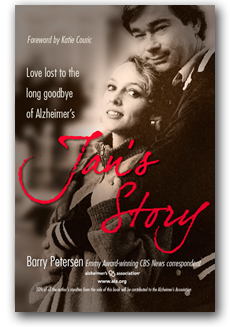Posts Tagged ‘books’
Great Sex after 50: A Woman’s Guide to Getting Her Mind, Body and Relationship Ready for Pleasure by Dr. Pepper Schwartz
Great Sex after 50: A Woman’s Guide to Getting Her Mind, Body and Relationship Ready for Pleasure by sexpert Dr. Pepper Schwartz, is an e-book in PDF format about our sexual issues, problems, and pleasures. Vibrant Nation, an online community for women over 50 that I enjoy immensely, published this book.
 Dr. Schwartz is a professor of sociology, author of many books, and the AARP sex & relationships expert. You’ve seen her on Oprah, Dateline, Dr. Phil and Lifetime programs. She knows her stuff, and she’s fun to read.
Dr. Schwartz is a professor of sociology, author of many books, and the AARP sex & relationships expert. You’ve seen her on Oprah, Dateline, Dr. Phil and Lifetime programs. She knows her stuff, and she’s fun to read. But my goodness, this book is way overpriced — 54 pages for $29.97? And it’s just in PDF format, so if you want a paper copy, you have to print it out yourself. I’m all for e-books — I buy them all the time and read them on my iPad, where I read this one. But even full-length e-books are generally priced at $10-$12, not $30. Please, Vibrant Nation, this book is too useful and well written to price itself out of the market.
Vibrant Nation also offers a useful, free report: Top 5 Treatments for Vaginal Dryness and Dyspareunia (Sexual Intercourse Pain).
Prayers for Bobby today: Gay kids committing suicide
Gay teens are killing themselves — two 13-year-olds due to bullying (see this terrific blog post by Sue Katz), and a college student whose tryst was videoed and put online. It sickens me that young people just discovering their sexuality feel so vulnerable that it’s easier to die than to live. Those of us who have lived long enough to know ourselves, accept ourselves (including our sexuality — whatever its stripes or colors), and find or create a community that lets us live fully and honestly have a responsibility to pass this along to young people.
That’s how Leroy Aarons felt at age 61, and that’s why I’m repeating the following post from January 2009. I don’t know if you can find the Lifetime movie now, but the book is as valuable now as the day it was written. Please read it, then pass it along to someone who needs it. A life may depend on it.
Here’s what I wrote in January 2009:
 At age 61, prizewinning journalist Leroy Aarons discovered the true story of Bobby Griffith, a story so gripping that he devoted himself to retelling this story in novel form.
At age 61, prizewinning journalist Leroy Aarons discovered the true story of Bobby Griffith, a story so gripping that he devoted himself to retelling this story in novel form.
His book, Prayers for Bobby, has inspired a movie premiering on Lifetime TV, Saturday, January 24, 2009. It is the riveting true story of teenager Bobby Griffith, who back-flipped off a freeway overpass into the path of a tractor trailer at age 20 because he could not accept his homosexuality. Prayers for Bobby chronicles Bobby’s angst at growing up gay in a fundamentalist Christian family and an anti-homosexual social and school environment. Aarons gently and lovingly pieces together Bobby’s life, fears, hopes and, finally, hopelessness, with the help of the five year diary he left, his legacy.
Prayers for Bobby (subtitle: A Mother’s Coming to Terms with the Suicide of Her Gay Son) is also the story of Mary Griffith, Bobby’s mother, played by Sigourney Weaver in the Lifetime movie. A staunch, one-tracked fundamentalist, Mary was convinced that if she and Bobby just prayed enough, and if Bobby tried hard enough, God would cure him of his homosexuality. She prayed, she nagged Bobby relentlessly, she shamed him, she put Bible quotes on the mirror for him to see when he wakened. Too late, Mary finally realized with a thunderbolt of insight that the reason God had refused to cure Bobby was that there was nothing wrong with him.
What does this have to do with our age group? Plenty. Think about how we had to discover our own sexual and sensual natures despite the mores of our restrictive society in an era that condemned what seemed our most natural feelings and desires. Imagine being trapped in a world that didn’t understand you at a time you couldn’t even understand yourself. And reach out.
If you think you don’t know any closeted gay teenagers, it’s only because they are closeted. Maybe your “Bobby” is your grandson, or your granddaughter’s best friend, or the neighbor kid, or the quiet boy at church. We’ve learned a lot about life and about sexuality in the decades we’ve been living on this earth, and part of it is to accept ourselves and open ourselves to younger folks who might need a role model, a listening ear, and a warm “so good to see you today.”
Please see the movie, and read the book, which goes into much more detail and will haunt you in a beautiful way.
I am proud that I knew Leroy Aarons until his death four years ago, called him my friend Roy, and still enjoy a close friendship with Joshua Boneh, his surviving spouse. Please check out the website that Joshua and Roy’s friends have constructed in Roy’s memory and to celebrate the movie that he always hoped would be made about his book.
 (photo of Leroy Aarons and Joshua Boneh)
(photo of Leroy Aarons and Joshua Boneh)
Olive Kitteridge
I loved reading Olive Kitteridge, winner of the 2009 Pulitzer Prize for Fiction. The book is a masterful anthology of short stories, linked together so that they become a novel. Characters from one story reappear in another at a different time of life, and as we learn more about Olive, her husband Henry, their son Christopher, and other people who weave through their lives, we piece together a patchwork of lives, dreams, pivotal moments, and regrets. The book is deeply engrossing, insightful, and often disturbing.
I’m always looking for literary fiction with strong older characters for whom sexuality is an accepted part of their emotional lives. Their sexual feelings or activities don’t have to be blatent, just acknowledged (by the author if not by the character) as normal and expected. Olive Kitteridge delivers, especially in the final story, “River,” where Strout narrates the feelings of the now widowed, 74-year-old Olive who is about to go to bed with a new man:
Oh, what young people did not know. They did not know that lumpy, aged, and wrinkled bodies were as needy as their own young, firm ones… [I]f love was available, one chose it, or didn’t choose it… But here they were, and Olive pictured two slices of Swiss cheese presssed together, such holes they brought to this union–what pieces life took out of you. Her eyes were closed, and throughout her tired self swept waves of gratitude–and regret.
I loved Olive Kitteridge so much that as soon as I’d finished, I wanted to start reading it again, now that I knew more about the characters. I also wrote a fan email to the author, Elizabeth Strout, which she graciously answered. (As an author, I know what a solitary endeavor it is to write books, and I always appreciate hearing from readers, so I hoped Ms. Strout felt the same.)
 I was thrilled to learn that two of the stories from this book would be performed at Z Space in San Francisco as part of the Word for Word series, and I rushed to see it on opening night. The script was not an adaptation but a staged, dramatic performance of the stories verbatim (hence the name, “Word for Word”).
I was thrilled to learn that two of the stories from this book would be performed at Z Space in San Francisco as part of the Word for Word series, and I rushed to see it on opening night. The script was not an adaptation but a staged, dramatic performance of the stories verbatim (hence the name, “Word for Word”). If you’re in the San Francisco area, I hope you’ll catch this play, now playing through September 26, 2010, then read the book.
Jan’s Story: Love Lost to the Long Goodbye of Alzheimer’s by Barry Petersen, reviewed
Jan’s Story: Love Lost to the Long Goodbye of Alzheimer’s by Emmy Award-winning CBS News Correspondent Barry Petersen is a stunning, wrenching, valuable book about loving and living with a spouse with Alzheimer’s Disease. Petersen writes from his heart, his gut, his personal truth as a loving husband who watches his wife disappear and is powerless to change the course of her disease.
View the trailer here. And please read the book, whether or not you have a spouse with Alzheimer’s disease. Barry and Jan never expected that this disease would invade and obliterate their marriage–but as we age, it’s likely that it will happen to us or to someone we love, and we should know what Barry learned the hard way. Highest recommendations.



